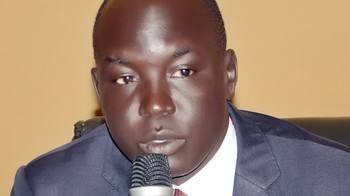The Republic of South Sudan is the world’s newest member state to the community of nations at all levels. Based on the principle of subsidiarity, the world is divided into alliances of partner states for the purposes of socioeconomic, political, cultural, and security strengthening and integration process to advance a just world order. This diplomatic practice was drawn from the fact that there is no independent country in isolation or survive without the help of other countries.
Accordingly, South Sudan falls within African groups at the continental level of the African Union (AU) and subsequently falls under the East African Community (EAC) which is one of the five Regional Economic Communities (RECs) of the AU, amongst other sub-regional blocks. However, these building blocks come with a lot of responsibilities and treaty obligations to achieve the intended objectives and vision.
Article 43 (a) of the Transitional Constitution of the Republic of South Sudan 2011 as amended provide that South Sudan foreign policy shall be served to ensure amongst other, “a promotion of international cooperation, especially within the United Nations family, African Union and other international and regional organizations to consolidate universal peace and security, respect for international law, treaty obligations and fostering a just world economic order”.
For South Sudan to foster these values of sovereignty and responsible leadership, the government must remain committed to treaty obligations which the government has ratified or acceded thereto. This is the only time when South Sudan shall be a key player in the realization of the vision under article 43 (a) of the Transitional Constitution and shall be a respected member in the affairs of global geopolitics.
One aspect of this treaty obligation is a financial contribution to financing activities of the RECs, failure of which carries penalties to a non-compliance partner state. In this regard, South Sudan is the newest partner state to the EAC. Unfortunately, the Government did not pay its financial contribution for the last three years amounting to twenty-seven (27) million United States dollars. This is excluding the current financial year 2020/2021 budget which was left out since the EAC budget is not presented to the East African Legislative Assembly (EALA). As many of you may be aware, each financial year contribution is 8.4 million United States dollars.
The failure of the treaty obligation by South Sudan has prompted the EALA on 30 June 2020 and passed a resolution for sanction and suspension of the Republic of South Sudan from the EAC. Article 143 of the Treaty establishing the EAC provides that “a Partner State which defaults in meeting its financial and other obligations under this Treaty shall be subject to such action as the Summit may on the recommendation of the Council, determine.
The EALA resolution did not only stop at sanction but has equally passed a resolution for suspension of South Sudan from membership of the EAC. In the same vein, Article 146 of the EAC treaty provides that “the Summit may suspend a Partner State from taking part in the activities of the Community if that State fails to observe and fulfill the fundamental principles and objectives of the Treaty including failure to meet financial commitments to the Community within a period of eighteen (18) months”. However, the same law provides that a suspended partner state shall continue to be bound by membership obligations including financial contribution until the suspension is lifted.
In light of the above background, the Revitalized Transitional Government of National Unity needs to speedily look for at least 8.4 Million United State dollars this week to pay the balance of the accumulated arrears of 27 million United State dollars to avoid a double tragedy of sanction and suspension. The EAC Council of Ministers shall sit on 10 July 2020 to deliberate on the resolution of the EALA, one of which is the sanction and suspension of South Sudan, amongst other agendas, unless it will not be included in the agenda. If the Government pays some arrears, I’m pretty sure that the Council of Ministers will not pass the resolution to the summit for approval. It is never too late to correct the mistake. Therefore, the government should, by all legitimate means do the needful to pay the cost before South Sudan is disgraced for non-compliance to a treaty obligation.
Beny Gideon Mabor is South Sudan Human Rights Commissioner and this opinion does not represent that of the commission, but solely personal.
The views expressed in ‘opinion’ articles published by Radio Tamazuj are solely those of the writer. The veracity of any claims made are the responsibility of the author, not Radio Tamazuj.




